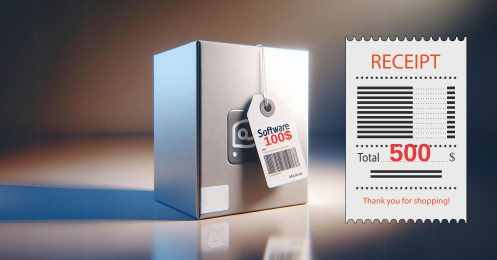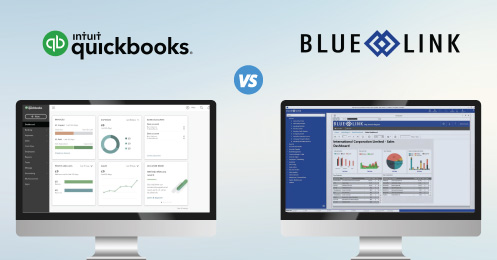With Black Friday and Cyber Monday just around the corner, retailers are starting to gear up for the impending influx of instore and online shoppers. Preparation for Black Friday and Cyber Monday is well underway as businesses look to beat the competition with better deals that last even longer. As the November 23rd date approaches, marketing departments are busy creating ads instore and online and ramping up their social media presence to further spread the word of upcoming deals. Warehouse staff are preparing by reorganizing high selling items to optimize the picking, packing and shipping process, developers have started to implement code to ensure websites will be able to handle an increase in site traffic and retailers are beginning to hire and train extra staff to work with customers instore. However, to thrive (and survive) during these upcoming shopping holidays, businesses need to ensure they have the right back-end systems in place – the right ERP for managing inventory and accounting, the right point-of-sale (POS) system for managing retail counter sales, and the right eCommerce platform for online purchases.
ERP
The right ERP system is the backbone of your business. All information is managed and stored from within a single database allowing the flow of information across all business departments. Unlike accounting software, ERP accommodates other business processes such as inventory and warehouse management, CRM, eCommerce, POS, barcode scanning and more. With ERP, businesses do not need to manually enter information across multiple disconnected solutions – a method that is time-consuming and prone to human error. Information automatically updates across departments. Sales orders easily become invoices and purchase orders, and picking slips are generated and sent to the warehouse. Purchasing decisions are made using live data from within the system based on inventory levels, orders from all sales channels accumulate for picking, packing and shipping, and barcode scanning improves the receipt of inventory and the shipping process.
POS
Point-of-sale software allows a retail store to create a transaction with the customer paying on site. Customers have the option of paying by gift card, on account, in multiple currencies, with split payments and more. When selling product through multiple sales channels (such as retail, eCommerce and wholesale) it is important that information syncs in real-time. What happens if you sell out of a product instore and decide to order 100 more – without realizing that the warehouse just received a shipment of the same product? This is where ERP software with POS functionality comes into play. In this situation, since all information is maintained in a single database when you run out of the item in the store, the system will show what (if any) is available in the warehouse or is already on backorder. This is just one example of how ERP can help manage processes across multiple sales channels and business departments.
eCommerce
As eCommerce sales continue to grow during shopping holidays, it is important that you have the right platform and solutions in place to handle the entire order process. A robust and atheistically pleasing front-end store is important to convert visitors into customers, however, what happens after the customer places an order online? How does the warehouse staff become aware that an order is ready for picking, packing and shipping? What happens if that product is out of stock? Once again, this is where ERP software comes into play. Integration between your ERP and eCommerce store will enable the transfer of information bi-directionally so that data flows in an efficient and automated way. When an order is processed online, it automatically is pulled into your ERP, inventory levels update, and the order is sent to the warehouse. Once that order is shipped, confirmation and tracking information then flows back online for the customer to see.
Black Friday and Cyber Monday are not just about maintaining fully stocked shelves, and which company provides the best deals - it’s also about optimizing back-end process to efficiently fulfil orders.











